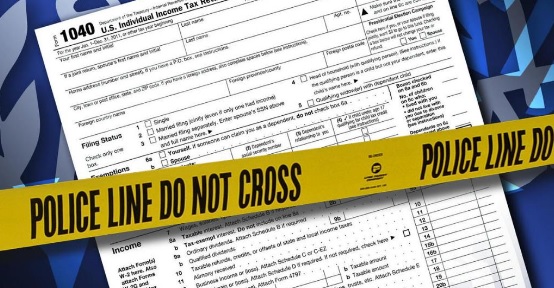
IRS warns tax preparers about a new refund scam
By KATHY KRISTOF MONEYWATCH February 6, 2018, 5:30 AM
Only a few days into the tax-filing season, the IRS sounds an alarm about a new tax scam. Specifically, it’s warning tax preparers to be on guard about the fraud, which aims at stealing taxpayers’ refunds by using data compromised in tax preparers’ offices.
The agency said it has already received some fake tax returns that had proper taxpayer names, addresses, Social Security numbers and even bank account information for the victims.
In an unusual twist, they directed some bogus refunds to the real taxpayers’ bank accounts, the agency said. A criminal, posing as a debt collector, then contacted the taxpayers telling them that the IRS sent the refunds in error, and the victims should forward the money to the crook.
Because these fraudulent returns contained all of the taxpayer’s correct information, down to the right number of dependents, the IRS believes the scam started in tax-preparation offices. The agency assumes that the thieves compromised the data because some preparers were taken in by phishing scams that then loaded malicious software onto their computer systems, making all the taxpayer information that was kept by these preparers vulnerable to theft.
The IRS said it’s still in preliminary stages of investigating the con and can’t quantify how many people have been affected. But because this type of scam has a way of burgeoning overnight, the agency wanted to warn preparers to secure their computer systems.
“Given the history that we have seen on scams like this, when these start, they tend to proliferate quickly,” said IRS spokesman Terry Lemons. “When a scam turns out to be successful, they tend to expand. We wanted to alert tax professionals to be on the lookout.”
Unfortunately for consumers, the ultimate victims of this con or those who find themselves hit by tax fraud have a far more difficult course than consumers whose credit card they steal. In the latter case, consumers have some steps they can take to deter criminals from using that stolen information to open up new accounts.
In the former case, the first inkling that a taxpayer would get that the thieves victimized them is when their electronically filed return gets rejected as a duplicate. At that point, in addition to reporting the fraud to the credit bureaus and the Federal Trade Commission, tax fraud victims need to fill out a particular IRS form, 14039. The taxpayer must fill out taxpayer’s 1040 on paper, with the fraud affidavit attached to the front.








 EastTexasRadio.com Powered by Ten Stations
EastTexasRadio.com Powered by Ten Stations




